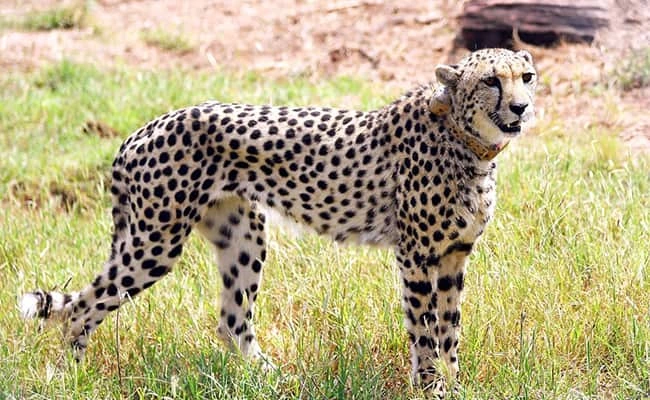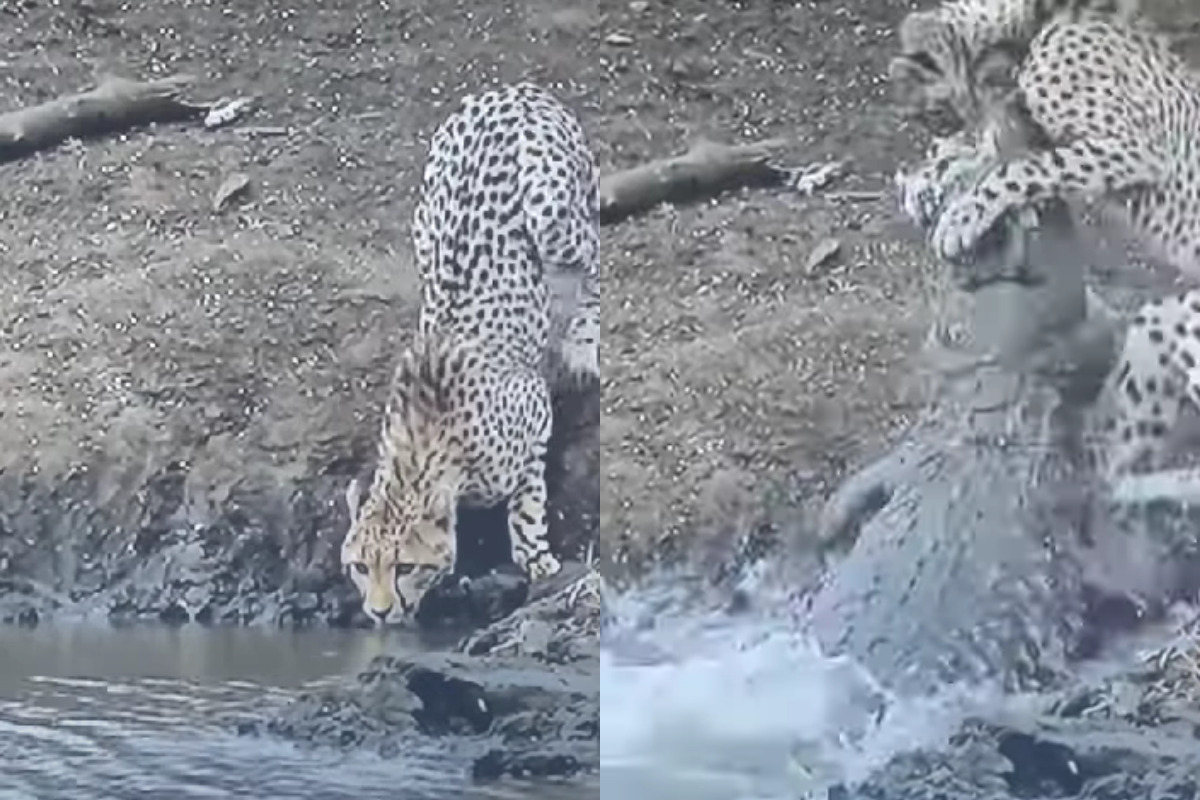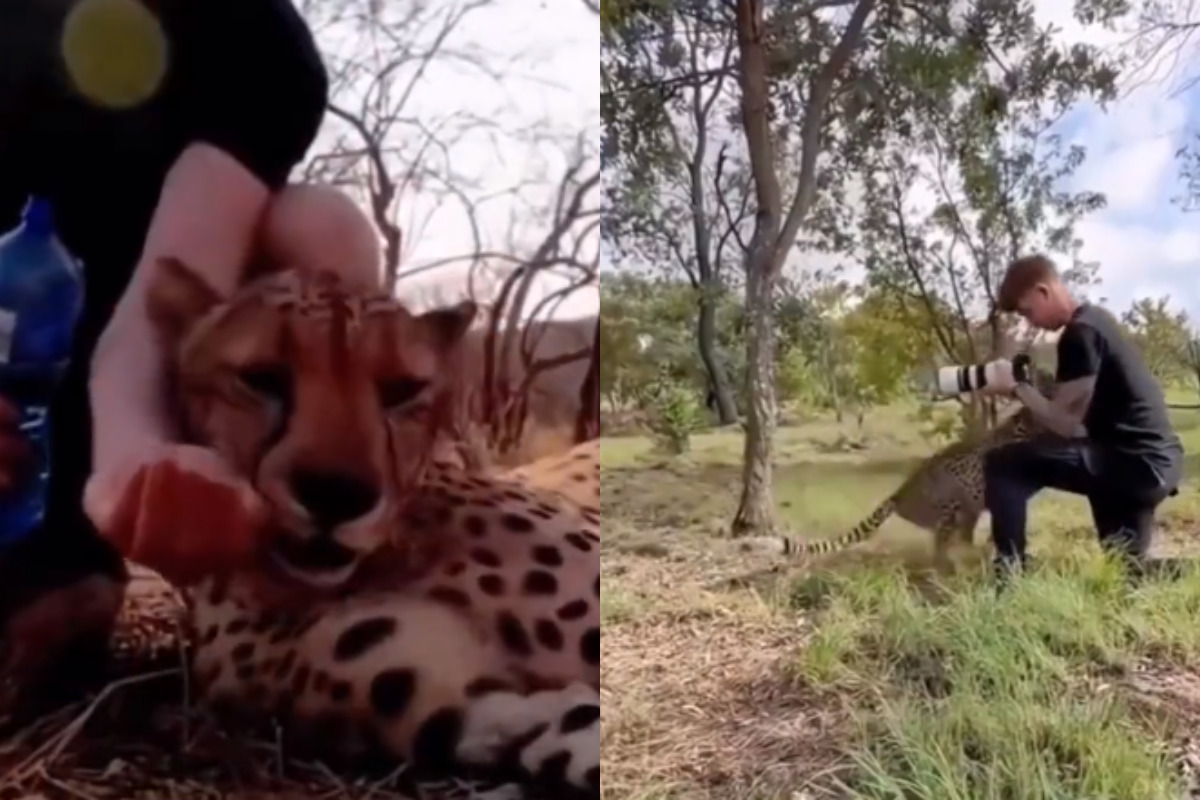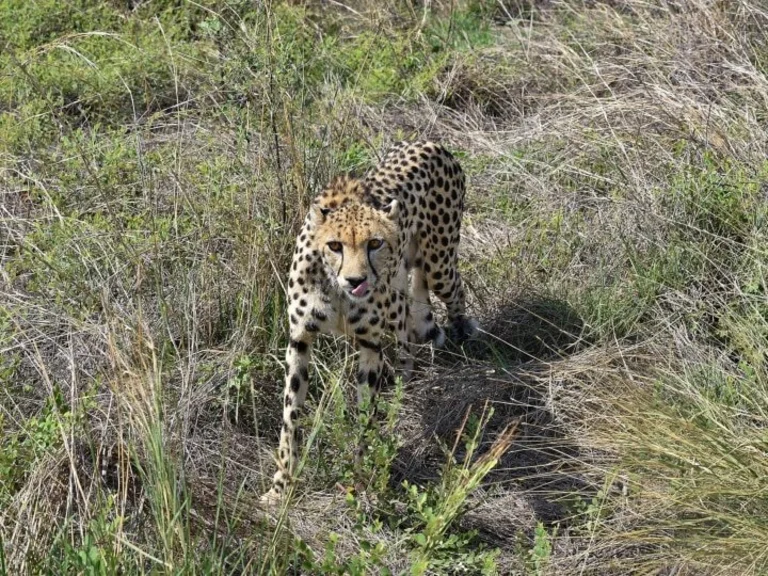After the death of 8 cheetahs in just four months, it is feared that ‘radio collar’ could be the possible reason for their death. The government has denied reports attributing the deaths of cheetahs to causes such as radio collars. But a report in ‘Indian Express’ quoted wildlife officials as saying that it has been suggested to remove radio collars from 10 cheetahs living in the open in Madhya Pradesh’s Kuno National Park (KNP). Officials said that it is not possible to tell how long it will take to remove the radio collars of cheetahs.
Madhya Pradesh’s Principal Chief Conservator of Forests (Wildlife) JS Chauhan said that bacterial infection can spread due to radio collars in monsoon. He said that ‘this could also be a reason for the death of cheetahs’. However, he said that an investigation is needed to find out the cause of these deaths. The chairman of the Cheetah Task Force said last week that Suraj, a three-year-old cheetah found dead in Madhya Pradesh on July 14, had died of septicemia caused by a skin tear from the radio collar. Suraj was brought to KNP from South Africa in February this year.
Septicemia is very rare in cheetahs
Septicemia is caused by the spread of blood poisoning by bacteria, which may be the result of radio collars worn around the neck of cheetahs in the current rain. Rajesh Gopal, head of the Cheetah Project Steering Committee, also said that the reason for the death of cheetahs could be septicemia caused by the use of radio collars. He said that due to conditions like humid weather, the use of radio collars can lead to infection. He said that due to the radio collar, there was a wound in the skin. Because of which insects attacked the sun. His condition worsened due to the wet and humid weather. Due to which a lot of infection spread in his body and septicemia happened. Which is the rarest of rare case among cheetahs.
Must Read – Amazon Sale: This 5.1 Bluetooth Truly Wireless Water-Resistant Earbuds With 25Hrs Playtime Can Be Bought For Just Rs 999, Check Out Now!
Keep watching our YouTube Channel ‘DNP INDIA’. Also, please subscribe and follow us on FACEBOOK, INSTAGRAM, and TWITTER











